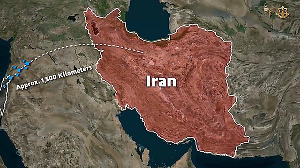'The private sector will look to the Budget to check whether there are any headwinds or tailwinds.'

R Shankar Raman, the chief financial officer and whole-time director of Larsen & Toubro (L&T), expects the budgetary allocation for infrastructure to change in July's Budget announcements.
He spoke to Amritha Pillay/Business Standard outlining the company's exposure to West Asia, its second-largest market, and the trends in the private capex spending.
The Interim Budget announcement includes an 11 per cent increase in the capital expenditure outlay.
There was definitely an expectation for infra spending. What are your thoughts on the increased percentage?
The increase in the percentage was better than expected. Apart from the capital expenditure (capex) outlay and the R&D allocation, there are no other numericals.
Otherwise, it (Interim Budget) is all about directions and policies.
To that extent, the quantification is reassuring, but I expect it to change in July and the allocation will get a little more serious consideration.
We will have to wait and watch. To that extent, it was on expected lines, with no changes and disruptions.
What are the allocations that you expect to see in July?
Depends on how they're going to approach the tax revenue. At the moment, an aggressive mode of mobilisation has happened (on tax collection) over the last six months.
There is a doublespeak there according to me. The taxpayers are welcome so long as they pay the tax.
We can't deal with a heavy hand and I think they will reassess because the next five years means another ballgame.
I expect them to be a little more calibrated in the allocation and infrastructure, as it is not expected to get anything less than 10 per cent.
Depending on the direction in the Interim Budget, what does it do for private capex in India?
The private capex is independent of what happens in the budget. I think the private capex will go strongly on the economic viability of the investments.
Now, the private sector has burnt its hands in the past by going with the momentum.
The private sector, in my opinion, will look to the budget to check whether there are any headwinds or tailwinds.
But the fundamental decision to invest would depend on the demand and supply situation, cost competitive markets, whether domestic or international.
One of the major concerns of the brokerages is L&T's exposure to West Asia. Several media reports are hinting at a scale-down of capex.
What are your thoughts?
The news from West Asia is that they are taking stock of where they have reached after the bout of investments over the last four or five years before they decide on the quantum of investments, going forward. Our book is full at the moment.
I am looking at it (course correction in ME orders if any) as an opportunity to assess my own capacity-balancing between the various sectors and constituencies.
So, it is okay so long as it is not going to lead to wholesale cancellations, which is not.
I don't think we should be concerned about it.
Hopefully, sometime post elections, if I were to believe the finance minister, there is a pot of gold at the end of the rainbow (domestic orders).
Another worry is the rise in fixed-price contracts as a share of your total order book.
I think it's a question of how we structure the contract.
Fixed price contract is one element of the risks in the contract.
We are not exposing ourselves to higher commodity risk, having learnt the bitter way.
On the contrary, I wish I was a little more exposed. I would have gained from that climb down.
What is the update on the planned asset monetisation?
The Hyderabad metro project continues to be challenging, but we are progressing on ridership.
In 18 months from now, that asset will be put into shape and it will make an interesting asset for pension funds and insurance companies to invest.
Feature Presentation: Aslam Hunani/Rediff.com












